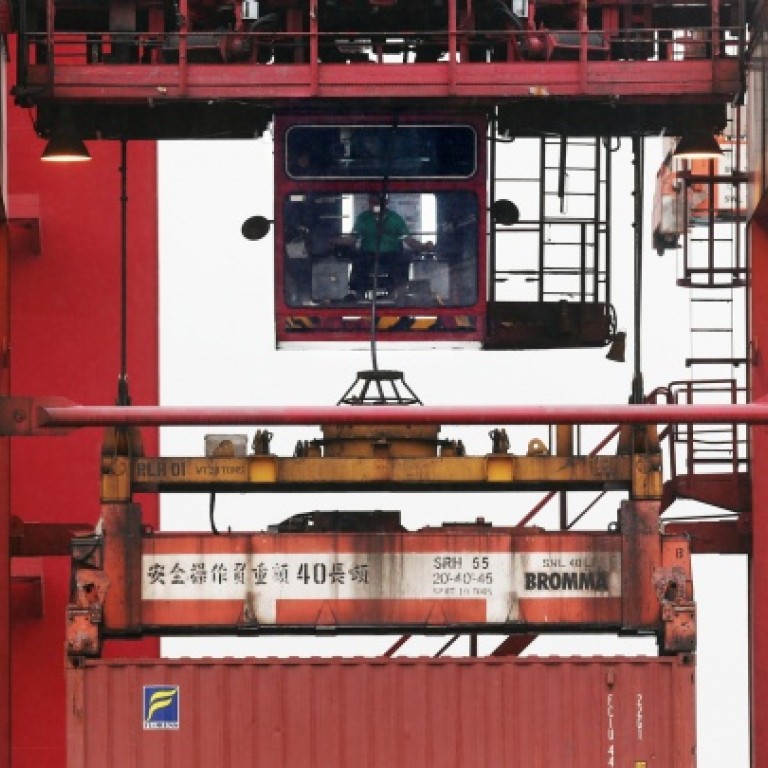
Shipping industry hit hard by dock strike
With the dockers’ pay dispute into its second month, cargo throughput is down, and the costs of shipping lines and freight handlers are up
While the dockers strike is costing Hongkong International Terminals a reported HK$5 million a day, the actual cost of the dispute is costing the maritime and logistics industry much more as ships and cargo are diverted to other ports.
Alan Lee Yiu-kwong, chairman of the Hong Kong Container Terminal Operators Association, said it was too early to estimate how much the month-long dispute was costing and how much cargo Hong Kong had lost. The association represents the terminal companies including HIT, Modern Terminals and Cosco-HIT that operate port facilities at Kwai Tsing.
But estimates from the Port Development Council show container volumes through the nine Kwai Tsing container ports fell 5.9 per cent in March to 1.42 million teu (20-foot equivalent units) compared with a year earlier. Lee expected this to fall further this month as the dockers' strike took hold. The April cargo throughput figures will be released by the middle of next month.
Lee said: "We are urging all interested parties to sit down and resolve the issue to minimise the impact on the industry, make Hong Kong more competitive and not hit the 200,000 people who depend on the port for their livelihood."
We are urging all interested parties to sit down and resolve the issue to minimise the impact on the industry, make Hong Kong more competitive and not hit the 200,000 people who depend on the port for their livelihood
Shipping lines and logistics firms have also been hit with extra costs as ships burn extra fuel while waiting to berth and vessels and cargo are diverted to other ports. Roberto Giannetta, from the Hong Kong Liner Shipping Association, said the strike's adverse impact on shipping lines was "particularly an issue in the days and weeks immediately after the strike started" when arrangements for each Hong Kong shipment had to be sorted out individually. "This was frustrating, took time and effort, and was ultimately [financially] costly."
Giannetta said now various arrangements had been put in place for most of the cargo that needed to be moved via Hong Kong. He said some freight was being delayed while ships waited to dock at the terminals, other cargo was being discharged at other Hong Kong facilities or at alternative ports and being barged or trucked to Hong Kong.
It is the longer term damage to Hong Kong's reputation as a fast and efficient transshipment port that has some senior industry executives concerned. Lee said once container shipping lines "feel that [Hong Kong's] costs are too high and it's not as efficient as other transshipment ports then they will change".
If carriers feel "Hong Kong is not as efficient, then for them to change is easy", he said, adding that Shenzhen, Shanghai, Kaohsiung and Busan were snapping at Hong Kong's heels for transshipment volumes. The last three cities already handle more transshipment cargo than Hong Kong at a time when intra-Asia emerged as the world's biggest trade hub, according to figures compiled by Hong Kong port planning consultant ICF GHK.
